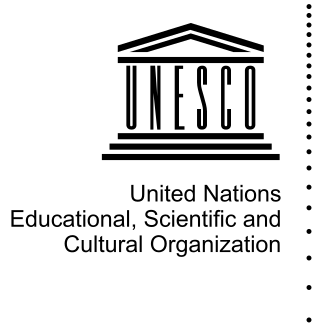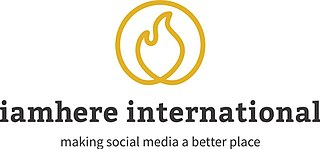Related Research Articles

The All-China Journalists Association(ACJA) (Chinese: 中華全國新聞工作者協會), previously known as the 'Chinese Young Journalist Association', was established in Shanghai on November 8, 1937. November 8 now marks 'National Journalists Day' in China. The society was established by Chinese wartime reporter Fan Changjiang and later organized and sponsored by the Chinese Communist Party (CCP). On September 15, 1949, the All China Journalist Association became the first Chinese media association to be formally recognized by, and integrated into, the International Federation of Journalists.
Journalistic ethics and standards comprise principles of ethics and good practice applicable to journalists. This subset of media ethics is known as journalism's professional "code of ethics" and the "canons of journalism". The basic codes and canons commonly appear in statements by professional journalism associations and individual print, broadcast, and online news organizations.
Media ethics is the subdivision dealing with the specific ethical principles and standards of media, including broadcast media, film, theatre, the arts, print media and the internet. The field covers many varied and highly controversial topics, ranging from war journalism to Benetton ad campaigns.
The Poynter Institute for Media Studies is a non-profit journalism school and research organization in St. Petersburg, Florida, United States. The school is the owner of the Tampa Bay Times newspaper and the International Fact-Checking Network. It also operates PolitiFact.
Aidan White is a journalist. He is the founder (2012) of the Ethical Journalism Network, a global campaign promoting self-regulation, good governance and ethical conduct in media. He was the General Secretary of the International Federation of Journalists from 1987 until April 2011. He previously worked for several newspapers in the United Kingdom. He was with The Guardian in London prior to joining the IFJ. He is a long-time campaigner for journalists' rights and is a former activist with the National Union of Journalists in Great Britain and Ireland. In 2021 he was made a Member of Honour of the union.
Ethnic hatred, inter-ethnic hatred, racial hatred, or ethnic tension refers to notions and acts of prejudice and hostility towards an ethnic group in varying degrees.

The International Programme for the Development of Communication is a United Nations Educational, Scientific and Cultural Organization (UNESCO) programme aimed at strengthening the development of mass media in developing countries.
The European Journalism Centre (EJC) is an independent, non-profit institute, based in Maastricht, Limburg, The Netherlands.
Racism has been a recurring part of the history of Europe.
The mass media in Serbia refers to mass media outlets based in Serbia. Both state-owned and for-profit corporations operate television, magazines, and newspapers, which depend on advertising, subscription, and other sales-related revenues. The Constitution of Serbia guarantees freedom of speech.
Media development involves capacity building for institutions or individuals related to freedom of expression, pluralism and diversity of media, as well as transparency of media ownership. Media development plays a role in democracy and effective democratic discourse through supporting free and independent media.
The code of ethics in media was created by a suggestion from the 1947 Hutchins Commission. They suggested that newspapers, broadcasters and journalists had started to become more responsible for journalism and thought they should be held accountable.
CEJI – A Jewish Contribution to an Inclusive Europe is a non-governmental organisation (NGO) based in Brussels, Belgium. Established in 1991, the organisation's areas of expertise include: education; inclusion and social cohesion; discrimination and xenophobia; hate speech and hate crime; media and digital literacy. It also provides anti-discrimination training to teachers, social workers and others. The organisation recently launched a series of online courses on hate crimes with support from Google, Facebook and Twitter that provide 'tools to educators, activists and other professionals to identify and combat hate speech'.
The European Centre for Press and Media Freedom (ECPMF) is a non-profit organisation that promotes, protects and defends the right to a free media and freedom of expression throughout Europe. It was founded in 2015 as a watchdog of the European Charter on Freedom of the Press. The vision of the European Centre for Press and Media Freedom is a society where media freedom enables open discourse and everyone can seek, receive and impart information. The main activities of the ECPMF are monitoring press and media freedom violations, advocacy and practical help for journalists, such as legal support and a "journalists-in-residence" programme, and engaging diverse stakeholders across Europe.

Media freedom in the European Union is a fundamental right that applies to all member states of the European Union and its citizens, as defined in the EU Charter of Fundamental Rights as well as the European Convention on Human Rights. Within the EU enlargement process, guaranteeing media freedom is named a "key indicator of a country's readiness to become part of the EU".

Zaina Erhaim is a Syrian journalist, and feminist. She works as a communications consultant and trainer with international organisations in Syria, Iraq, Morocco, Libya, Lebanon and Egypt. She has reported on the Syrian civil war from within Syria. Erhaim was the Institute for War and Peace Reporting (IWPR)'s Communications Manager, she trained hundreds of people whilst in Syria to be citizen reporters, notably a large proportion of them women.

Velma Šarić is a Bosnian journalist and the founder and president of the Post-Conflict Research Center – a peace building organization, based in Sarajevo, which works to cultivate an environment for sustainable peace in Bosnia-Herzegovina and the greater Balkans region. As a trained researcher, journalist, and human rights defender, she has dedicated her career to investigative reporting and peace building in the Balkans. Velma works on behalf of marginalized groups in Bosnia-Herzegovina, promoting and encouraging respect for the rights of victims, women, and ethnic minorities.

Women in media are individuals who participate in media. Media are the collective communication outlets or tools used to store and deliver information or data. The role of women in media revolves around the four axes of media: media freedom, media pluralism, media independence, and media safety. Women in media face the same difficulties and threats as men, and additionally experience gender inequalities, safety issues, or under-representation.Compared to men, women are much less likely to be included in the media globally. According to research, a minimum of twenty-five percent of news on television, radio and in the press mention women as a topic. According to a 2015 survey, only 19% of news experts and 37% of reporters worldwide were women. We recognize the gender-imbalanced perspective of society has the potential to promote and perpetuate harmful gender stereotypes,as behavioral scientists studying the underrepresentation of women in the workforce. It goes without saying that the media must change the way they portray the outside world, but who has the power to change the media itself?

The human rights record of Bosnia and Herzegovina has been criticised over a number of years by intergovernmental organisations including the United Nations Human Rights Council, the European Court of Human Rights and the Organisation for Security and Co-operation in Europe, as well as international and domestic non-governmental organisations such as Human Rights Watch and Amnesty International. The government of Bosnia and Herzegovina has been criticised for ethnic and religious discrimination in its treatment of ethnic and religious minorities such as the Romani people and the Jewish people. The government has also been criticised for its treatment of Internally Displaced Persons following the Bosnian War and its failure to provide asylum seekers with resources such as food, shelter and medical assistance. According to BH Novinari, the Bosnian Journalists’ Association, freedom of the media is an issue in Bosnia and Herzegovina, with journalists facing attacks, threats and pressure from government. Human rights non-government organisations have also reported interference in their work from the government. The Bosnian government has been criticised by the European Union for its slow response to domestically prosecute war crimes from the Bosnian War following the closure of the International Criminal Tribunal for the Former Yugoslavia in December 2017.

#iamhere, also spelt #IAmHere, is a social movement that uses counter-speech to counter hate speech and misinformation on social media, mainly Facebook. It began as a Swedish Facebook group called #jagärhär, and the umbrella organisation for the movement is iamhere international, is headquartered in Sweden. Each affiliate is named in the language of the country, such as #IchBinHier in Germany, and followed by the country name when in English, such as #iamhere India.
References
- 1 2 3 "Media Diversity Institute". Anna Lindh Foundation.
- ↑ "Media Diversity Institute". Ethical Journalism Network.
- 1 2 "Media Diversity Institute". Global Forum for Media Development.
- 1 2 Media4Diversity: Taking the Pulse of Diversity in the Media. Belgium: European Commission. March 2009. ISBN 978-92-79-12419-8.
- 1 2 Rupar, Verica (2012). Getting the Facts Right: Reporting Ethnicity & Religion. Belgium: MDI & International Federation of Journalists.
- ↑ "Reporting on Migration and Refugees Training Workshop for EU Journalists". Ethical Journalism Network.
- ↑ "World Press Freedom Day 2017". UNESCO.
- ↑ Kretzschmar, Sonja (2007). "Diverse Journalists in a Diverse Europe?". In Sarikakis, Katharine (ed.). Media and Cultural Policy in the European Union. Amsterdam: Rodopi. p. 215. ISBN 9789401204156.
- ↑ "European Media Institute Publishes Manuals on Media and Diversity". Info-Prod Research. 7 August 2003. Archived from the original on 2017-10-27. Retrieved 5 October 2017– via HighBeam Research.
- ↑ "Diversity Reporting Program Planned for South Caucasus". Info-Prod Research. 23 June 2002. Archived from the original on 2017-10-27. Retrieved 5 October 2017– via HighBeam Research.
- ↑ Tuller, David (2002). Reporting Diversity Manuel (PDF). London: Media Diversity Institute & European Union. p. 14.
- ↑ Pesic, Milica (August 2001). "The Media's Markers of Race and Ethnicity in the Balkans". Rhodes Journalism Review. 2001 (20): 24–25.
- ↑ Gross, Peter (29 November 2006). "A Prolegomena to the Study of the Romani Media in Eastern Europe". European Journal of Communication. 21 (4): 485. doi:10.1177/0267323106070012. S2CID 144580676.
- ↑ "About Dune Voices". Dune Voices.
- ↑ "How to Counter Hate Speech on Twitter". Stopping Hate.
- ↑ "About Media Against Hate". Media Against Hate.
- ↑ Madhumita Murgia, Hannah Kuchler (October 17, 2016). "Social Media: Challenging the Jihadi Narrative". Financial Times.
- ↑ "In Mali: Artwork from Motorcycle Parts". BBC Arabic. Dune Sounds.
- ↑ "I've never interviewed ordinary people. We use them only in vox pops". Intellect. Journal of Applied Journalism & Media Studies, Volume 6, Number 3.